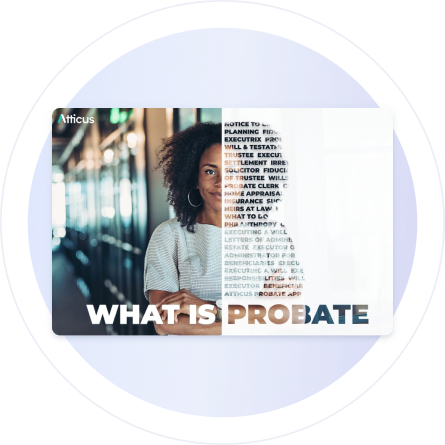California Probate Forms
Search below to find the right California Probate court forms for your situation. Need additional help? Atticus makes it easy to navigate the probate and estate settlement process from start to finish —see how it works.
All Forms

Hmm—it doesn’t seem like we have any forms for that search
If you’re looking for a specific form, please send an email to support@weareatticus.com and we’ll work on adding it to our forms library.

Looking for probate and estate settlement guidance?
Most people don’t realize that probate processes & rules vary from state to state, sometimes even county to county. Click below to view the Atticus Beginner's Guide to Probate.
Feeling overwhelmed? Check out our comprehensive guides to probate and estate settlement
What to do when someone dies - the 2025 checklist
Not sure where to start? We break down this complicated process into easy to follow steps

The beginner's guide to Probate
Learn what it is, the terms, and what the next few months will look like. We cover everything from qualifying to inventorying and closing.

Executors of an estate —what they do & secrets to succeeding
Being an executor involves a whole host of responsibilities that take an average of 500 hours and often last well over a year.

